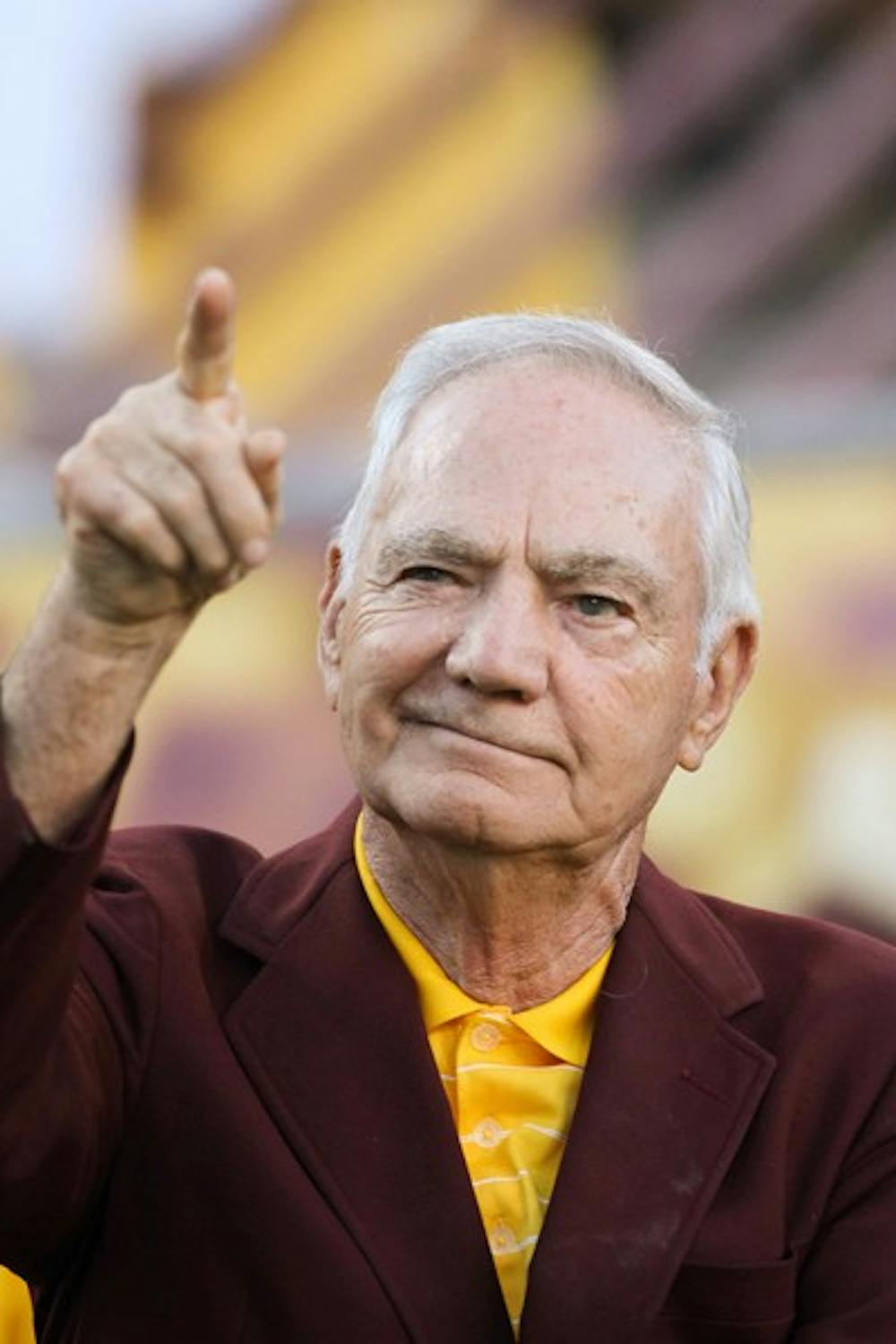In the same way George Steinbrenner defines the New York Yankees, Al Davis the Oakland Raiders and Jerry Jones the Dallas Cowboys, Frank Kush is synonymous with Arizona State football.
The legendary coach was presented with a lifetime achievement award from the Lott IMPACT Trophy at halftime of Saturday’s homecoming game. The award, named after former USC star Ronnie Lott, is the only college football award that takes character into account.
The ASU Alumni Association and Sun Devil Club also honored the Hall-of-Fame coach at a luncheon on Friday, but Kush’s ability to help college students mature, rather than the numerous awards, is how the ASU athletic community defines him.
“He did a great job of showing us what life was going to be about,” former ASU and Minnesota Vikings running back Brent McClanahan said. “One thing they said is that if you can play for Frank Kush, you could play for anybody in the NFL, and it was true. He was a great coach. He did a great job and I’m just happy that we’re celebrating him now.”
McClanahan played for Kush and lettered from 1970 to ’72.
Former ASU baseball coach Bobby Winkles, who describes Kush as a brother after coaching tenures overlapped from 1959 to 1971, had similar things to say about the longtime football coach.
“We were both strict disciplinarians,” Winkles said. “We had to make men out of boys. I don’t care what anybody tells you, 18-year-olds are boys. When we coached them people were like, ‘Man, I don’t like that guy,’ but 10 years later they come back to see us and I think that’s the most important thing.”
Not only did Winkles talk about the respect shown for Kush during his 22-year tenure at ASU, but also marveled at the luncheon’s turnout, considering Kush hasn’t stepped on the field as a coach in 32 years.
“It shows the respect for Frank,” Winkles said. “To come to this and probably see 100 of his players show up, that shows what they think of him.”
Kush’s presence looms large when it comes to ASU football. The coach compiled a 176-54-1 record in his 22 seasons leading the Sun Devils. He only experienced two losing seasons and had the field at Sun Devil Stadium named after him.
However, Kush’s relationship with ASU was not always positive. In the middle of the 1979 season, Kush was forced to resign when a player filed a $1.1 million lawsuit against the school, accusing Kush of harassment. While this incident took place three decades ago, it has not been forgotten.
“I think that was unfair,” Winkles said. “I think that whoever was in charge at ASU didn’t have the guts to stand up for Frank. When he left, this program went down and I don’t think, to this day, it’s back to what it was when he was there. I think that was an injustice to him.”
Winkles went on to say Kush pushed a lot of players around, but as Wilford White, former ASU quarterback Danny White’s father, said it was often just tough love.
“(Frank) hit (Danny) real hard in the head,” White said. “(Danny) said later he realized it was because (Frank) liked him and thought he had potential. Tough love.”
Although he did not play for Kush, “Whizzer” White was the ASU running back from 1947-50.
Controversy may surround Kush, but White was adamant about the appreciation and admiration he has for his son’s former coach.
“He was a tough task-master, but he brought the best out of the players,” White said. “He did it his way and I’ve always admired him for that. Danny thinks the world of him today, hated him when he played for him, but loves him today.”
It is rare that an athlete or player becomes so identifiable with their team, but the name Frank Kush carries a heavy meaning in the ASU community.
Reach the reporter at william.boor@asu.edu
Click here to subscribe to the daily State Press newsletter.





